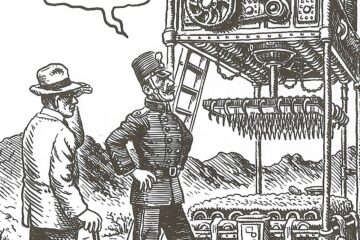Book Review by Aniruddha Rege
Every reader, at some point in his literary journey, is bound to suffer from a mildly inflated ego and a sense of eminence derived from the number of books he has read and the knowledge he has acquired. In such time of delusion, I find it best to pick up a book which I know will put me right back in my place and ensure I stay there for the foreseeable future. Stephen Hawking, a name you may have heard here and there, is a master at writing such books.
A Brief History of Time is definitely one of those books. Very erroneously classified as Pop Science by some, Hawking uses the book to take the reader, most of which are certain to be laymen with a rudimentary understanding of what physics, chemistry and science is, on a journey starting with Isaac Newton and Galileo through the likes of Heisenberg and Einstein right to the modern developments in the field of theoretical physics and it’s unending search for the ultimate equation – The Unified Theory. When I read The Theory of Everything last year, Hawking had touched upon many of the topics he covers in far more depth here. However, given that the nature of the topics is so extremely complex, I’d wager he’s barely managed to cover 0.000001% of the depth scientists have actually gone to. This isn’t Pop Science at all. This is a well-written book which does not attempt to hide the fact that these topics cannot be covered in 200 pages.
Lucky for us, the purpose of the book is not to make us overnight experts in the Theory of Relativity and Quantum Mechanics. Rather, Hawking fully takes into account that most readers of his book will be undeniably stupid with a pretense of being intelligent, and modifies the purpose of the book to perhaps inculcate an appreciation in our minds of the absolutely incredible progress science has made in enhancing our understanding of the universe and the terrifying distance yet to be covered. Two chapters into the book, I stopped reading it to understand the exact theories being quoted and the mathematical solutions behind the predictions of those theories (I still cannot get behind the concept of imaginary time, to give one of many examples) and started reading it with an intention of gaining that appreciation and maybe a tiny bit of an understanding of where we, as the human race, stand in the universe and why we stand where we stand.
Stephen Hawking’s skill as a teller of these tales shows only how much he is in love with his field of study and how much clarity he would have in this field to be able to simplify an extremely complex topic even to this extent. It would take a scientist of the highest intelligence to be able to pull this off, and Hawking does it admirably. It also betrays a slight arrogance, which will be found in most men of that order, and pride in the legacy he carried into the 21st Century. You can feel this pride in the way he talks about the history of theoretical physics from Newton’s discovery of Gravity, the duality of light, Einstein’s groundbreaking Relativity and Heisenberg’s push into the world of Quantum Mechanics. Hawking talks adoringly of the multitude of scientists who gave the theories a little nudge in the right direction, applying knowledge and discoveries from every field to better our understanding of the universe and even more importantly, of how it might have begun. You can also feel his struggle with the understanding of whether there is indeed a God, and his struggle to deny his existence through finally being able to explain the beginning of the universe.
A Brief History of Time will not make you an expert in theoretical physics. In fact, it might have the dangerous effect of making people think they know what they’re talking about and get themselves thoroughly embarrassed, if someone in the audience actually knows what they’re talking about. However, it is a book which will teach you a lot more about human nature and how we affect and are affected by the universe around us. It shows us how the theory of time becoming relative instead of absolute, completely changes what is possible and what isn’t. It is a book which will tell the discerning reader how discovery of knowledge in one field has a cascading effect on all others and how the best scientists in the world – the ones who truly push the boundaries of science – are curious to know about absolutely everything. In pieces, Hawking allows us a glimpse into the minds of the greatest scientists we have ever known and how they balanced ego with humility to achieve what they achieved. In other pieces, it will tell stories about how fragile science is, with scientists discarding and disproving their own theories when they have newer and better ideas. It allows us a peek into science’s struggle with the existence of a Creator and its eternal search for answers. It shows us how open to change science can be, and how necessary that change is to ensure that it keeps flowing.
This is a book definitely worth reading, even if you do not understand 95% of what is written. In the 5% you will understand, you will probably learn more about physics and human nature that most books would manage to teach you in their entirety. Don’t read it to be able to understand Black Holes and be able to argue about their existence, but read it to understand a 500 year old journey of modern physics which has shaped modern society and thinking in a million different ways.
A Brief History of Time will tax your brain. But it is a tax you will love paying. This is one history lesson that will hold the future for us, after all.

